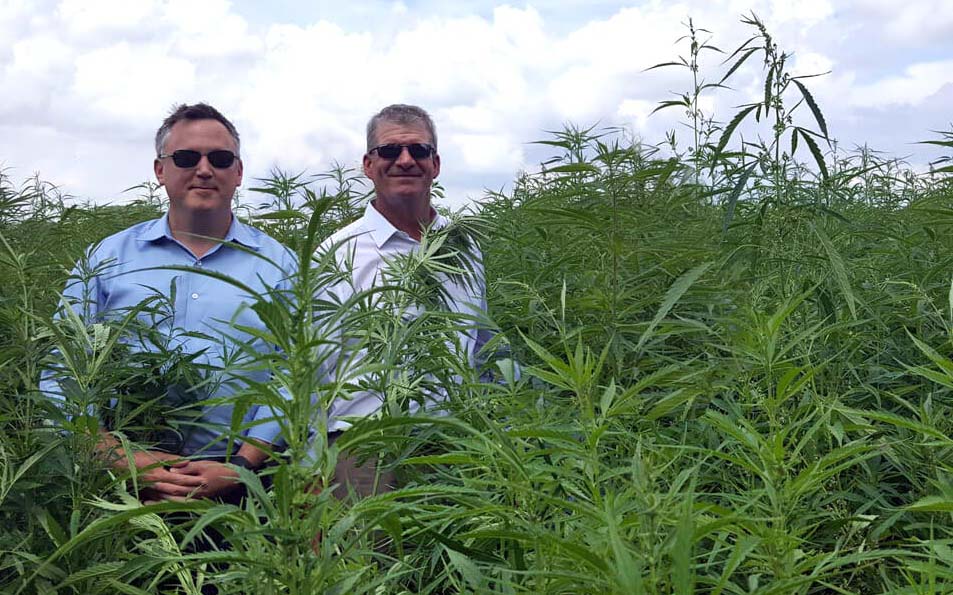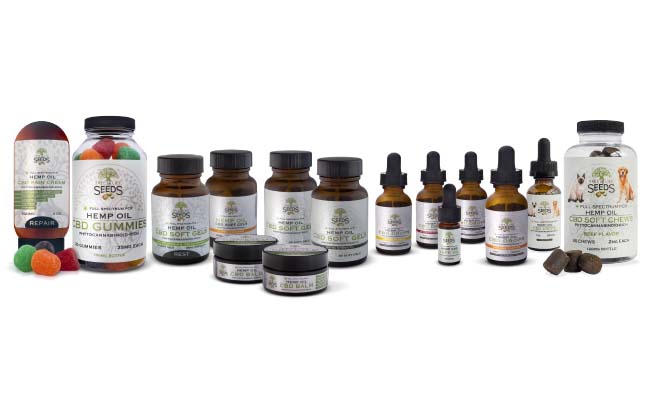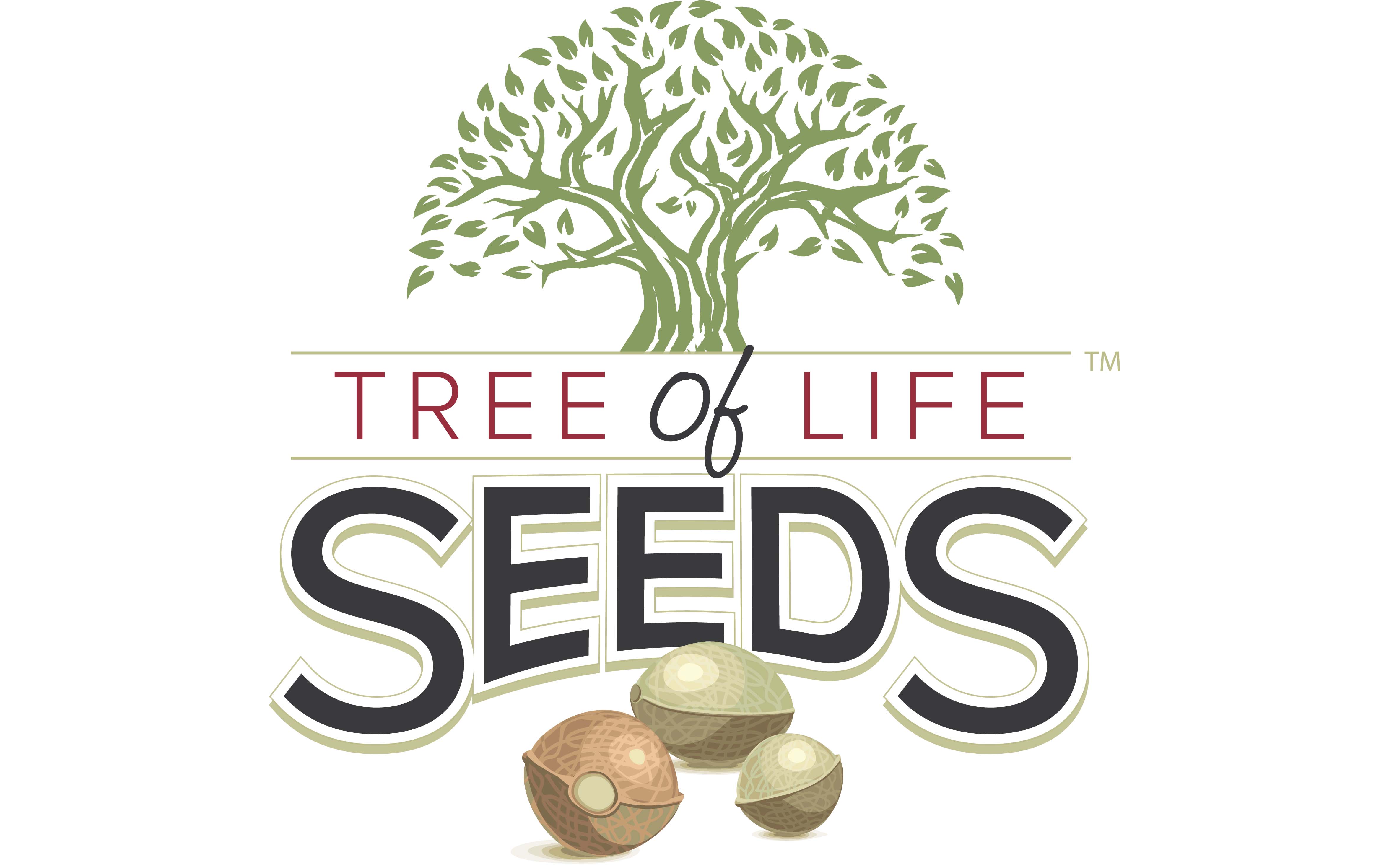Tree of Life Seeds, at home in Arkansas
January 21-27, 2019
By Becca Bona
From hemp genetics to hemp products, the duo that brought Tree of Life Seeds to fruition has spent just under a decade analyzing, studying, and building businesses in the hemp industry. CEO Jason Martin and COO Brian Madar are both from the Natural State and bringing their business home has always been the goal.
“People ask us why we wanted to be in Arkansas,” Martin recalls, “The answer is simple. We spent money elsewhere when we could absolutely save and pay somebody in this market if we were able to do it here.”
Delving into the industry: A scientific approach
As a team, Martin and Madar have the background to start a business, vertically integrate it, and ensure success. Madar brings an agricultural background coupled with experience in the oil and gas industry to the table. Martin’s background is in the business development side of things.
The two began looking into the industry as far back as 2011, as industrial hemp gained momentum in various states across the country. For research purposes, they asked industry veterans if they’d share their expertise. “We saw the good, the bad, and the ugly. We saw legal and illegal – we saw absolutely everything,” Martin says.
Nevertheless, they saw a potential for serious growth.
As far as companies go, the two have been involved in several, but they eventually found their bread and butter on the genetic side of things when they began Tree of Life Seeds in 2015.
Martin explains, “Right now, we’re the top-five hemp seed producer in the U.S. – we’re a top-five biomass producer in this industry.” The main goal was to make hemp seeds more versatile, as Martin says, “We changed the genetics to be more conducive for outdoor growing industrially – thus providing the most value.”
As states began legalizing recreational marijuana, the industry began to change. At a time when most people were breeding tetrahydrocannabinol (THC, the crystalline compound that is the main active ingredient of cannabis) up – Martin and Madar went in the opposite direction. The two focused on breeding THC down through a natural selection crossbreeding process.
In addition to developing hemp seeds whose genetics allow for more productive outdoor grows, the company’s primary focus from a genetics standpoint was to produce a crop with a high yield for farmers growing hemp for CBD production. This led to the release of “Cherry Wine,” Tree of Life Seeds’ flagship hemp genetics offering, globally famous for its high percentage of CBD and almost untraceable levels of THC.
As Tree of Life Seeds grew, so did their offerings. The company officially launched their line of premium full-spectrum hemp CBD products in November of 2017, and have continued to add new products to their product line ever since.
That same year, Tree of Life Seeds saw the opportunity to come home to Arkansas. Growing industrial hemp was approved in the state in early 2017, but there were issues in getting up and running.
“Before that point, if we really truly wanted to be in this business we had to go rent land, lease land, buy land – all of these things, all over the country where it was legal and hire employees there to manage it while we weren’t there,” Martin explains.
The ongoing goal is to move most of the production within the company from both a crop and genetic standpoint to Arkansas. One day the team hopes to also produce all of their CBD products here, locally.
CBD 101: Learning to navigate the market
CBD has been identified to have multiple properties – but it’s most widely known for reducing inflammation, anxiety, and providing a better night’s sleep. It’s largest problem? It’s not regulated by the FDA – which can lead to safety and even legal issues.
On top of that, medical research is only slowly catching up to what we do know about CBD. For instance, as Martin notes, CBD by itself is not likely to be fully processed in the average body.
Many CBD companies produce it in isolate form, rather than in full-spectrum whole-plant form, which is what Tree of Life Seeds offers. Research has shown that it takes a synergistic approach for most people to process and benefit from CBD, making the isolate form less beneficial.
Back to that legal standpoint. While the 2018 Farm Bill opened more avenues for industrial hemp – prolonging facilities that were originally designated for research purposes – there’s still the restricting legal definition of what CBD can’t be.
Per the 2018 Farm Bill hemp cannot contain more than 0.3 percent THC. If it’s found to have more, it’s considered non-hemp cannabis or marijuana under federal law.
On top of that, many CBD products on the market might have other issues beyond containing an illegal amount of THC – like toxins.
“First or foremost,” says Martin, “You could be putting heavy metals, toxins, residual solvents – you could be putting a lot of really bad things in your body. The product hasn’t been regulated. Secondly if you regularly put some CBD in your body that has trace amounts of THC in it – eventually you will fail a drug screening.”
Which – considering the lack of regulation is kind of scary. Martin and the team urge consumers to do their homework.
“Most of the products that are sold on the market have not had THC removed from them. Most of them – you’re going to find when you take them to a third-party lab – have three, four, or even five percent THC in them,” says Martin.
To combat this, Tree of Life Seeds sends their products out to a third-party lab to ensure that what they’re offering is in fact what they say it is. It’s another reason why they have developed and carry their own line of CBD products ranging from soft gels and oil drops to topicals and edibles.
This has also forced them to create an educational arm of sorts so that they can inform the public at-large about their products.
“Our products are very, very different,” says Martin. Tree of Life Seeds is able to account for the entire production of their CBD products, from the seed and farm it started out at to the production and crossbreeding process. They then internally test and even get a third-party reading to make sure their products are sound.
“We put batch labels and expiration labels on every one of our products. If there is an issue we can track it back to that particular batch or that particular thing,” Martin says. “Ninety nine percent of all the companies in this industry don’t do that.”
This goes back to providing the legitimacy that is often missing from companies who are looking to break into or who are already a part of the hemp industry. Martin, Madar, and their team come with liability insurance and data to back up their claims.
Looking toward the future, Martin hopes Tree of Life Seeds can educate those locally about CBD and its benefits.
“Our laws in the US right now aren’t really good on the consumer protection side,” says Martin. “Those things should begin to change over the next year.”
For more information on CBD and hemp, visit Tree of Life online: https://treeoflifeseeds.com/. You can also find their products in a variety of local businesses, listed on their website.
PHOTO CAPTION:
CEO Jason Martin, left, and COO Brian Madar, right, are determined to bring Tree of Life Seeds home to the Natural State. Having spent a little under a decade in the industrial hemp business
elsewhere in the US, the two know a thing or two about the dos and donts. (Photos courtesy of Tree of Life Seeds)





